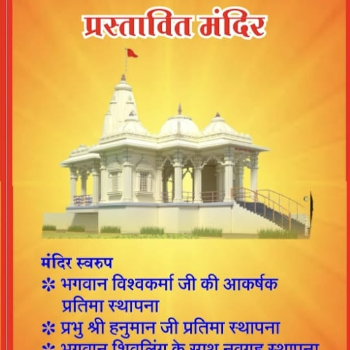In a bustling city like Mumbai, where skyscrapers reach for the sky and digital screens light up the night, connecting with cultural roots can feel like a distant dream. Yet, for many communities, preserving these roots is not just a desire but a necessity. Meet Meera Patel, a 32-year-old software engineer who, like many in her generation, finds herself caught between the allure of modern life and the pull of her cultural heritage.
Growing up, Meera watched her father, Rajesh Patel, meticulously organize events for the Vishwakarma Puja, a celebration honoring Lord Vishwakarma, the divine architect in Hindu mythology. These celebrations were more than just rituals; they were a time when the community came together, shared stories, and strengthened bonds. However, as the years passed and life got busier, these gatherings began to dwindle. Meera realized that if this trend continued, her own children might never experience the joy and unity she once felt during these festivals.
This is where the Vishwakarma Temple Simulation steps in. It offers a unique solution to a problem faced by many like Meera the erosion of cultural traditions in an increasingly digital world. By creating a virtual space where communities can come together to celebrate their heritage, it bridges the gap between tradition and technology.
Imagine Meera's surprise when she first logged into the simulation. It wasn't just a digital rendition of a temple; it was an immersive experience. She found herself virtually standing in a beautifully recreated Vishwakarma temple, complete with intricate carvings and vibrant decorations. The sound of temple bells and chants filled the air, instantly transporting her back to her childhood.
The simulation allowed her to participate in rituals, interact with priests, and even engage with other community members, all from the comfort of her home. This wasn’t just about convenience; it was about accessibility. For many elderly community members like Meera's grandmother, who struggled with mobility, this was a way to reconnect without the physical strain.
But the impact of the Vishwakarma Temple Simulation goes beyond personal convenience. It fosters community engagement on a larger scale. Take the case of Arun Joshi, a community leader in Pune, who used the simulation to revive interest in annual Vishwakarma celebrations. By organizing virtual events, he managed to attract not just local participants but also members from across India and even abroad. This digital inclusivity allowed the community to thrive, despite geographical barriers.
Moreover, the simulation offers educational opportunities for younger generations. Meera's 10-year-old son, Aarav, was captivated by the interactive storytelling feature. Through engaging narratives, he learned about the significance of Vishwakarma Puja and the values it embodies. This wasn’t just about preserving culture; it was about passing it on in a way that resonated with today's youth.
The Vishwakarma Temple Simulation addresses an emotional need—a longing for community and cultural continuity. In a world where physical distances often translate to emotional ones, especially during traditional celebrations, it offers a way to bridge that gap. The simulation is more than a digital tool; it’s a vessel that carries the essence of community spirit and cultural pride into the digital age.
Incorporating advanced technology with cultural sensitivity, this solution empowers communities to keep their traditions alive and relevant. It reminds us that while the world might change, the essence of who we are, our roots and values, can still thrive when nurtured with care and creativity.
For individuals like Meera, the Vishwakarma Temple Simulation represents much more than a connection to her past; it’s a pathway to ensure that her cultural heritage remains vibrant and accessible for future generations. In embracing this innovative approach, communities are not only preserving their legacy but also enriching it, one virtual celebration at a time.
Visit Vyaparify Site:
https://id.vyaparify.com/tarana-sarw-vishwkarma-samaj-u-s-samiti 
